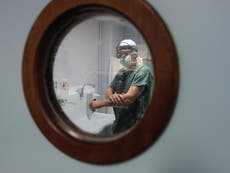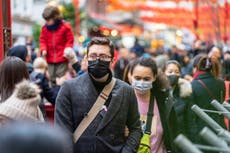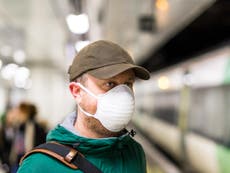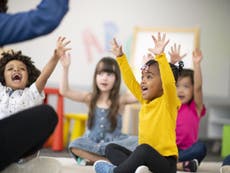Coronavirus school closures mean we all need to look after our most vulnerable children
As a teacher, I know that this break won't be a holiday for students, it will mean anxiety and loneliness – and we all need to step up

Friday marked the last day of normality for schools, teachers and students across the UK for a significant period.
The last day of spellings and swimming lessons and times tables tests. The last day of skipping ropes and exams and register monitors. Education stands on the brink of a closure far longer than a usual Easter holiday or even a summer one. And while six weeks can feel like forever when you’re 10 anyway, this latest closure lacks even a theoretical end-point.
Alongside working as a journalist, I’m also a primary school teacher for half of every week. So I know that the perception of “bloody teachers and their time off” runs the gamut from affectionate teasing, to genuinely bitter dismissal.
But anyone who honestly thinks teachers are whooping in delight over Friday’s shutdown (however limited that shutdown might be, with an extensive list of children that schools will still be expected to provide some service to), is utterly mistaken.
Because as well as liking long holidays (yes, I admit it), you know what else teachers like for the most part? Children. No really, we do.
There’s a reason schools have been advocating for their free school meals children and even making their own plans, rather than relying on government schemes. There’s a reason colleagues have relayed their experiences, waking at 3am in the morning, in a fog of unsettled dreams about how the most vulnerable students in their classes will cope.
There’s even a reason why schools and teachers have, for the most part, accepted their ever expanding roles as therapists, social workers, dieticians and mediators – and now childcare providers – as well as educators.
And from Monday, we have to take this vast safety net of expertise and community away from many of our children, for a period of time as yet undefined.
But if it takes a village to raise a child, then schools have become that village for many modern children. And even the luckiest students are likely to be at greater risk of boredom, loneliness and anxiety right now.
How much more then, for those children on the periphery of vulnerability? The ones who don’t quite reach the threshold for their own social workers or education plans to qualify them for a school place, but with chaotic family lives or parents struggling against poverty and ill health. For these children, school can be a point of comfort and stability. As we’re finding out more than ever in this crisis, schools matter.
So as a teacher, while the schools are closed, I’m urging you all to step in and help. To become a nation-wide school community if you like. I’m not suggesting you should approach strangers to share your top 10 parenting tips, or enquire as to why their six-year-old is eating his body weight in crisps. Aside from anything else, you’d be breaking social distancing rules…
But there are clever ways to provide that support and community in this crisis and we’re already starting to see some of them. From the many educationalists offering their support to parents suddenly plunged into home-schooling hell, to everyone offering to run errands, pick up shopping or share recipes for families who are self-isolating.
It could be as simple as offering help over the phone or through an online chat to parent-friends you know who might be struggling, or writing letters to your nieces and nephews. You could offer your skills in foreign languages or art to your friends’ children, or skype a performance of Room on the Broom replete with funny voices to your next door neighbours. There are a thousand inventive ways we can all help.
And wouldn’t it be wonderful if the UK government followed Norway’s example with a press conference specifically aimed at answering children’s questions and concerns?
It should be the case all of the time of course – but now especially, children and young people are everyone’s responsibility. And the darker side of closures is the removal of a key safeguarding community. Schools are primed to spot signs of abuse and neglect and often function as a second nexus, where children feel safe enough to talk about the things that might be happening to them. As households distance themselves, the sad truth is that some children who desperately need help will be distanced from those that can provide it. But even within these constraints we must all be vigilant for signs of distress. Nobody wants already vulnerable children to feel even more alone.
I’ll be honest, I’m not one of those teachers who by the end of August every year is desperate to return to the daily routine of school life. I often wish the holidays could go on for just a week or two more. But I'm going to miss my funny, clever, inquisitive little class of year 3s and I feel like I’ve been reminded what a genuine privilege it is to play a part in their development.
The end of this particular break can’t come soon enough. Until then, we all have to support our children, as well as each other.








Join our commenting forum
Join thought-provoking conversations, follow other Independent readers and see their replies